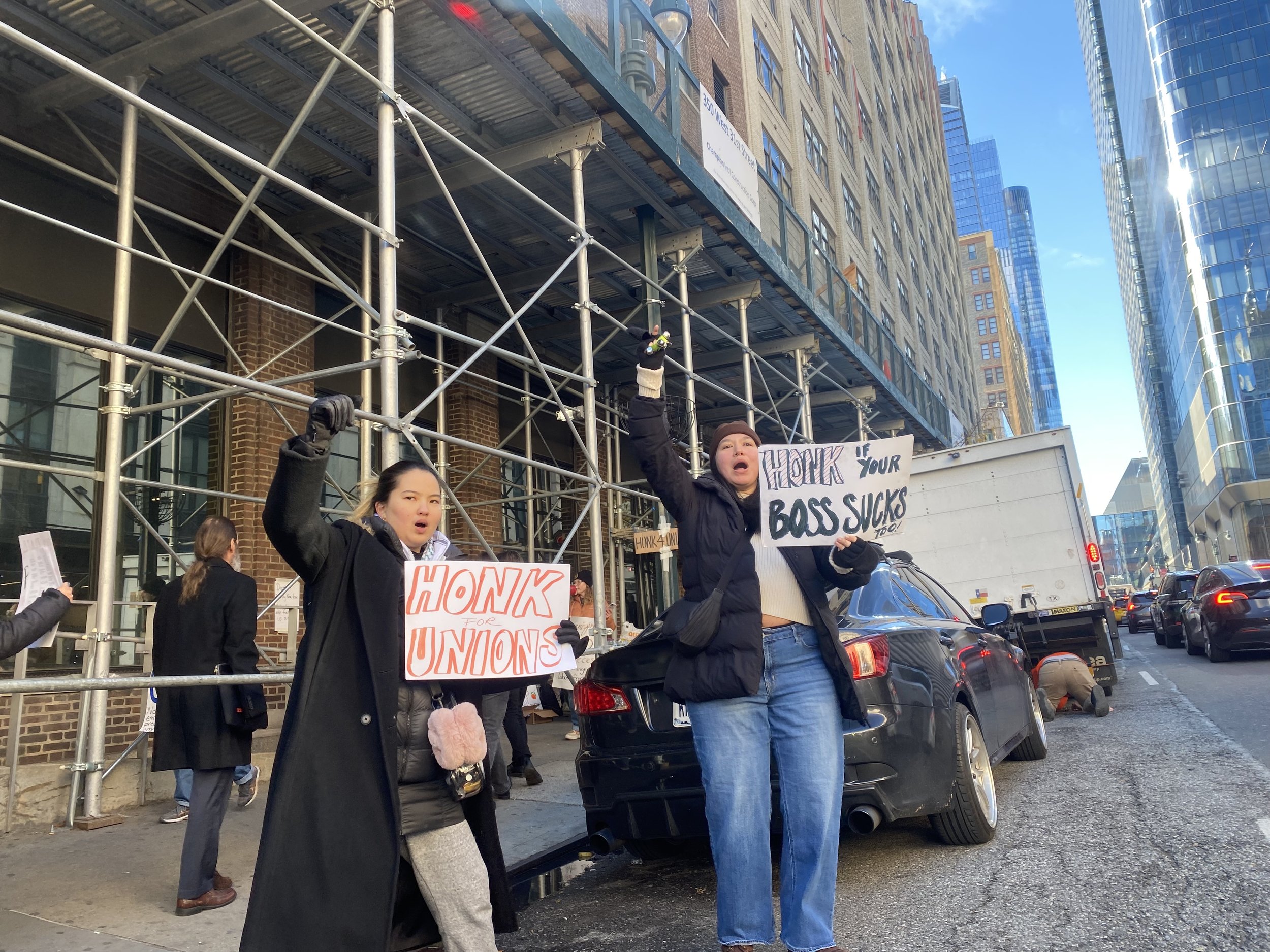The UAW Staff are On Strike—This Time, For Themselves
“On strike! Shut it down! New York is a Union town!” shouted members of the United Auto Workers Staff United union (USU) outside of the New York City Central Labor Council offices in Hudson Yards.
Two members of the USU hold up strike signs outside of the New York City Central Labor Council Offices on Thursday, December 20, 2024.
On Monday, the USU, the union that represents the staff of the United Auto Workers Staff United (UAW) members, began a national strike for better contracts and fair pay. The USU are professional organizers who help workers at companies like Ford and Stellantis (formerly Chrysler) organize for better working conditions. The UAW itself represents over 400,000 auto, aerospace, agriculture, and higher education workers across the nation.
“We are the ballasts that allow [UAW workers] to be stable and functional,” said Annie Levin, a USU member and UAW staff organizer.
The USU has a tough fight ahead of them. Unlike workers who are more directly connected to a company’s means of production, like auto workers striking on a factory line, the USU are paid by the UAW to help organize locally and across the Northeast, parts of Canada, and Puerto Rico.
“It’s kind of a meta situation. The USU are paid to help the workers at the UAW win their union fights,” said communications staffer at the Service Employees International Union (SEIU), Diego Grossmann. Grossmann, 27, is here in support of the USU as part of a larger fight for union staff seeking fair representation in unions across the nation.
“The SIEU is working on their own organizing, but we’re still in the preliminary stages. It’s good to help our friends at the USU when they’re at the end of theirs,” says SEIU Union member Diego Grossman, in support of the UAW staff.
According to USU staff on the picket line, UAW workers rely on USU members to facilitate organizing to win fair pay and stable contracts. But the UAW staff, not just the members, need fair employment of their own. The USU is made up of local organizers and temporary regional organizers, the latter of which work on three-month contracts and often get laid off with no notice and zero benefits.
“When they heard we were striking, they cut our pay completely. But what we are striking for in the first place is severance, longer contracts, and layoff notice,” says Molly Ragan, 30, an organizer at the UAW’s local 7902 union in New York.
“I’ve been on their picket lines, so they come to mine,” said Ragan of the UAW members’ support for and reliance on USU organizers.
In order to effectively help UAW workers organize, unionize, and stand up to company executives for fair pay and labor practices, USU members need to have contracts longer than 3 months, says Ragan. A large part of the strike is the understanding that the success of these local negotiations depends upon relationships between union staff and UAW members themselves—and the union staff should not have to fear for their job security in the process.
“It’s our job to think about [ways to organize and negotiate] 24 hours a day, to support the workers in the shop,” said Diego Grossmann.
UAW staff organizer Annie Levin drums to the staff members’ chants outside of the Labor Council building.


